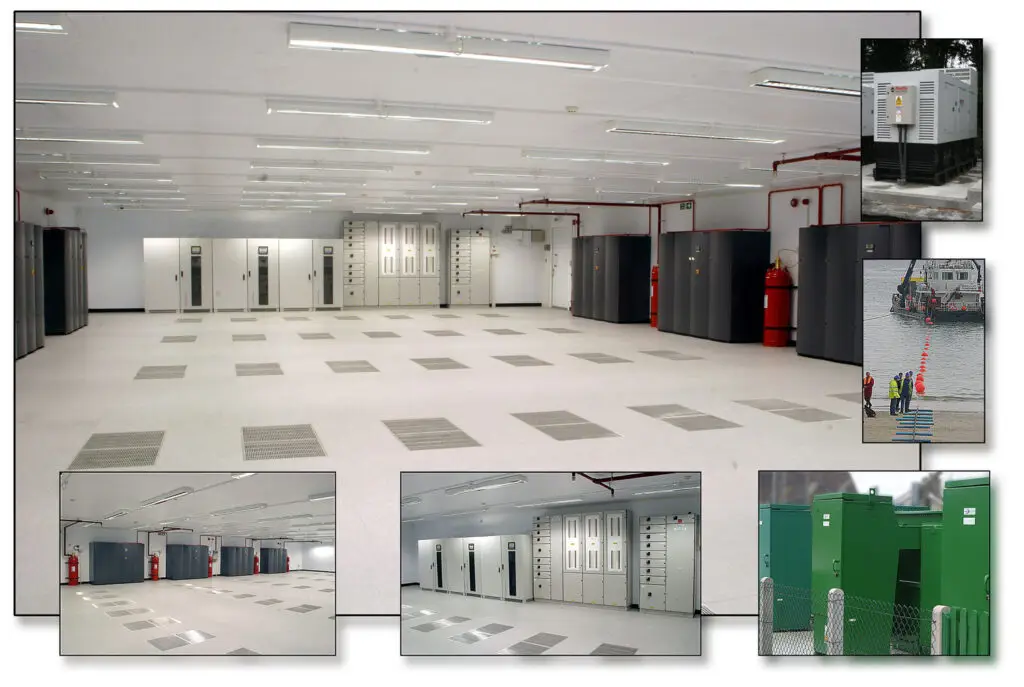This is a question that many people are asking these days. Cloud computing is a term that refers to the ability to access information and applications over the Internet. This means that instead of having software installed on your computer, you can access it, or store it, on a remote server. In this blog post, we will discuss what cloud computing is, as well as some of the benefits that businesses can experience by using this technology.
Wondering what all the fuss is about cloud computing?
Cloud computing has taken the world by storm because it offers so many benefits over traditional software installation. You can access your data and applications from any device with an Internet connection, making it perfect for work or travel. Plus, you don’t have to worry about updates or maintenance – that’s all handled by the remote server.
Ready to take your business to the next level? Cloud computing can help you do just that. With more storage space and faster access to information, you can keep up with the competition no matter where you are. And since everything is stored in the cloud, there’s no need for extra hardware or software – just a reliable Internet connection.
What is a Cloud Data Center?
A cloud data center, also known as a managed services provider (MSP), is a company that provides businesses with the resources they need to move their operations to the cloud infrastructure. This can include anything from storage space and computing power to software and applications.

What is the difference between cloud computing services and data centers?
Data centre end users will not be mandated to flush out the tanks of their machinery as this can be expensive and Cloud computing services are similar to data centers, except that they do not require any money upfront and can be used by anyone. They also offer more flexibility because of their ability to scale up or down as needed.
How does cloud computing work? How do you get started with it?
There are many different ways in which a business can get started with cloud computing. The most common way is to sign up for a cloud computing service, such as those offered by Amazon Web Services (AWS) or Microsoft Azure. These services allow businesses to rent space on a remote server, which they can use to store their data and applications.
In order to get started with cloud computing, you first need to understand the different types of services that are available.
What are the different types of cloud services?
There are many different types of cloud services available, and each one comes with its own set of benefits. Here are some examples:
- Software as a service (SaaS) – This type of cloud service provides users with access to software that is hosted on a remote server. It can be accessed via an Internet connection from anywhere in the world for example Salesforce, Google Apps for Work.
- Platform as a Service (PaaS) – This type of service provides users with a platform on which they can develop and run their own applications. It is similar to software as a service but offers more flexibility because the user has control over the environment in which their application runs. For example, Heroku is a PaaS that allows developers to deploy their applications without having to worry about setting up servers.
- Infrastructure as a Service (IaaS) – This type of cloud service provider provides users with access to computing resources, such as servers and storage, which can be used to host their own applications or store data. For example, Amazon Web Services (AWS), Google Cloud Platform, and Microsoft Azure are IaaS providers.
How can cloud computing help my business?
The cloud environment offers a number of benefits that can help businesses to improve their efficiency and bottom line.
Some of the most common benefits include:
- Scalability – The ability to scale up or down as needed makes it easier for businesses to grow and expand their operations without having to invest in new hardware or software every time they need more capacity.
- Cost savings – Cloud data centers are usually cheaper than traditional methods of running an IT infrastructure because they don’t require any upfront investment in hardware or software.
- Flexibility – The ability to scale up and down makes it easier for businesses to grow their operations without having to invest in new hardware or software every time they need more capacity.
- Mobility – Cloud computing allows employees to access their applications and data from anywhere in the world, Cloud servers or cloud storage can be accessed from any computer with an internet connection.
- Security – Cloud service providers offer robust security measures such as encryption, firewalls, and data loss prevention tools that can help prevent unauthorized access to your applications or data.
The three model types of Cloud Computing
Cloud computing is divided into three models: Private, Public, and Hybrid.
Private cloud computing
It is used by businesses who want to keep their data and applications on a remote server that is solely for their use. This type of cloud is perfect for companies who are concerned about security and privacy.
Public cloud computing
It is offered by third-party providers and is perfect for businesses that need to store or access large amounts of data. This type of cloud is typically less expensive than private cloud computing, but it can be less secure.
Hybrid cloud computing
A combines the best features of both private and public clouds, making it perfect for businesses that want the security and control of a private cloud with the flexibility and scalability of public clouds.
Is cloud computing safe?
Security is always a concern when it comes to using new technology. However, cloud computing is very safe. The servers that are used for this technology are often well protected and have the latest security features installed. In addition, businesses can also take steps to ensure that their data is safe and secure by implementing additional security measures.
Are there any risks associated with cloud computing?
Although the risks associated with cloud computing are minimal, there is always a chance that something could go wrong. This is why it is important to do your research and select a reputable cloud provider. In addition, you should also have a backup plan in place in case of an emergency.
FAQ about cloud computing
u003cmeta charset=u0022utf-8u0022u003eu003cstrongu003eWhat is the difference between SaaS and PaaS?u003c/strongu003e
u003cmeta charset=u0022utf-8u0022u003eA SaaS provides users with access to cloud applications, while PaaS allows them to develop their own. Both types of services are delivered over the Internet from third-party vendors.
u003cmeta charset=u0022utf-8u0022u003eu003cstrongu003eWhat are Cloud providers?u003c/strongu003e
u003cmeta charset=u0022utf-8u0022u003eA cloud provider is a company that offers cloud computing services. These services can include Infrastructure as a Service (IaaS), Platform as a Service (PaaS), and Software as a Service (SaaS).
u003cmeta charset=u0022utf-8u0022u003eu003cstrongu003eWhat is the difference between public, private, and hybrid clouds?u003c/strongu003e
u003cmeta charset=u0022utf-8u0022u003ePublic clouds are offered by third-party providers, while private clouds are only for use by one organization. A hybrid cloud combines the benefits of both types of clouds.
u003cmeta charset=u0022utf-8u0022u003eu003cstrongu003eWhat is an example of a SaaS provider?u003c/strongu003e
u003cmeta charset=u0022utf-8u0022u003eOne example is Salesforce, which offers its CRM software as a service to customers over the Internet. Other examples include Microsoft Office 365 and Google Apps for Business.
In Conclusion
When it comes down to it, cloud computing is a great option for businesses of all sizes. It can help them improve productivity and increase efficiency while saving money at the same time. Although there are some risks associated with this technology, they are minimal and can be easily avoided by doing your research before choosing a provider or implementing any new services into your business.






